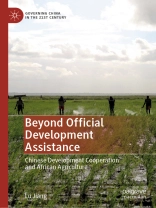This book investigates China’s contemporary development cooperation mentality and modality through the case of its agricultural engagement with Africa. It identifies three models, namely traditional agro-aid, innovative agro-aid and agribusiness models, of Chinese current agro-development cooperation with Africa, and unpacks the different models by tracing their historical origins and examining the actual practice based on project-level fieldwork conducted in Mozambique and South Africa. The book provides a preliminary and qualitative evaluation of China’s current agro-development cooperation with Africa, and explains the ‘implementation gaps’ as observed on the ground adopting a public policy approach. It also compares the Chinese way of development cooperation with that of the traditional donors (particularly the OECD-DAC members), and calls for a broadening understanding for international development cooperation that can allow win-win ideology and embrace diversified cooperation forms beyond the official development assistance (ODA).
Table des matières
1. Introduction.- 2. Tracing the Root of China’s Contemporary Agro-development Cooperation with Africa: A Historical Review.- 3. China’s Agro-development Cooperation with Africa: The Innovative Agro-aid Model.- 4. China’s Agro-development Cooperation with Africa: The Agribusiness Model.- 5. Practical Challenges of Chinese ‘Package’ Model of Development Cooperation: A Public Policy Implementation Approach.- 6. Conclusion.
A propos de l’auteur
Lu Jiang is a research fellow of the International Development Cooperation Academy based at Shanghai University of International Business and Economics, and a research associate with Fudan Development Institute in Shanghai. She gained her Ph D degree in International Relations at London School of Economics and Political Science.












